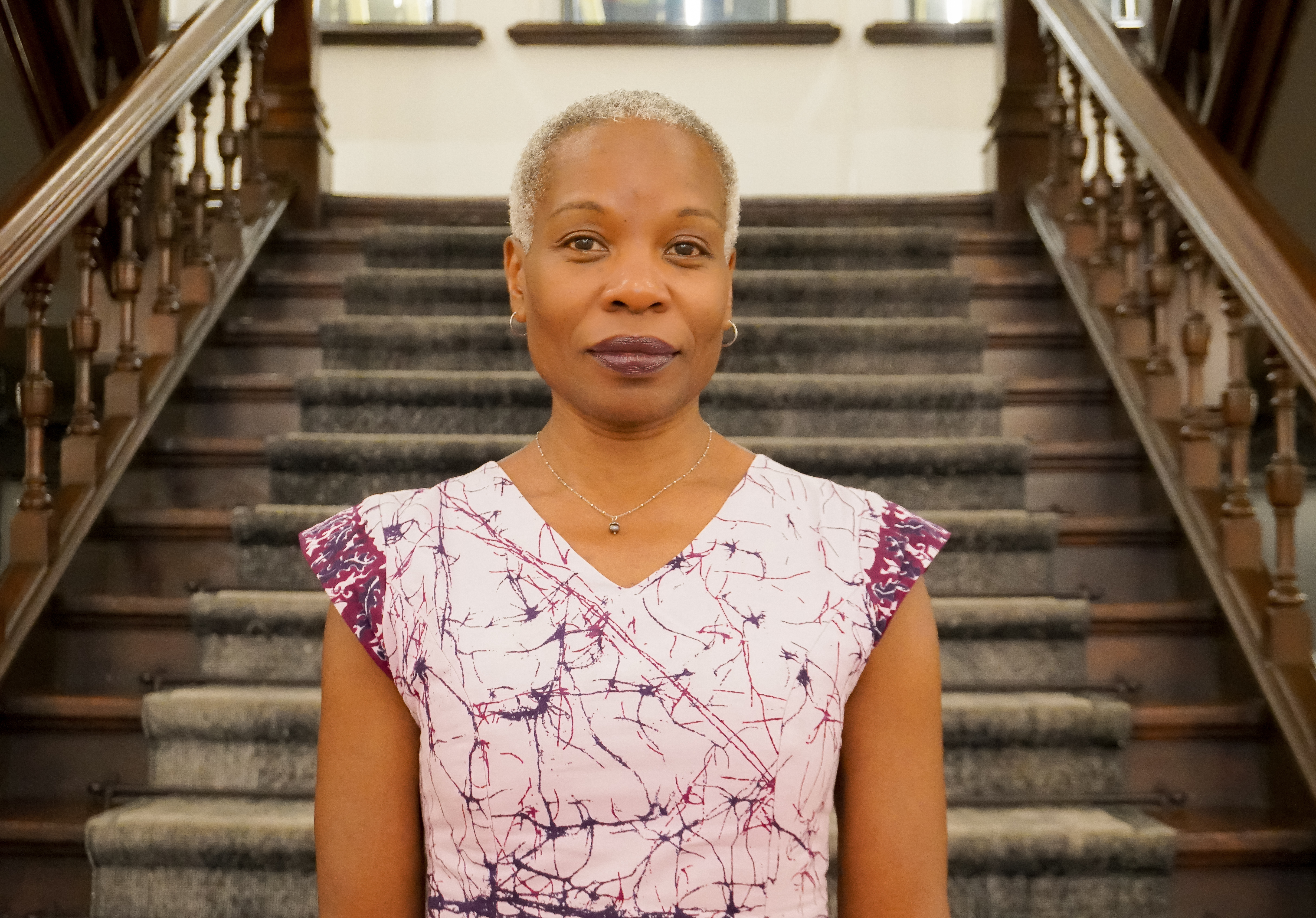
01.08.22 - Dr. Jewel Amoah joins the Daniels Faculty as Assistant Dean, Equity, Diversity and Inclusion
The Daniels Faculty is happy to welcome Dr. Jewel Amoah as its inaugural Assistant Dean, Equity, Diversity and Inclusion. Dr. Amoah is a Trinidadian-Canadian rights advocate and academic who has dedicated her career to the promotion and protection of human rights and to gender and racial equality. The new role of Assistant Dean, EDI is a reflection of the Faculty’s commitment to bringing about the changes required to foster equal access and representation at Daniels at an institutional level.
“By appointing Dr. Amoah as Assistant Dean, EDI, we are acknowledging that real inclusivity and diversity require not only a director or committee, but an integrated advocate working with students, faculty and staff throughout our academic endeavours,” says Dean Juan Du. “Jewel’s experience as an advocate and activist has been diverse and effective; we look forward to benefitting from her knowledge and perspective as we engage in this important work.”
A graduate of McMaster University, the University of Ottawa and the University of Cape Town, Dr. Amoah has inspired and produced systemic change, enhancing access to justice and the promotion of full rights for all, in a number of educational settings. Prior to joining the Daniels Faculty on July 25, she was the Human Rights and Equity Advisor with the Halton District School Board in Ontario. She also sits on the McMaster University Research Ethics Board and is a part-time Commissioner with the Ontario Human Rights Commission.
In her view, one of the biggest challenges to effecting systemic change in educational institutions is “fear of and resistance to the unknown.”
“The system,” says Dr. Amoah, “was not designed to critique itself — in the words of Audre Lorde, ‘the master’s tools will not dismantle the master’s house.’ And so part of the initial response to this challenge is an awareness that an equitable and inclusive house has no master, but a community of occupants who recognize that their survival and ability to thrive is based on inclusive collaboration.”
“I approach my role,” she continues, “from the perspective that new tools need to be developed and used: tools that carve out flexibility, transparency and accountability in all that we want to be and do. Part of this reference to new tools is also about new designs and new social positionality: giving voice to the disempowered and redrawing the lines of inclusion so that the margin becomes the centre.”
In the pursuit of these goals at Daniels, Dr. Amoah’s portfolio encompasses a range of activities and tactics, including but not limited to strategic planning, leadership and advice; data collection and analysis; training, workshops and program development; and committee work both internal and external to the Faculty.
Among her very first tasks, though, will be with the building of relationships with faculty, students and other stakeholders, in order to “facilitate the collaboration and strategic interaction that is to come.”
“Even if activities have not been formally framed in the language of equity and inclusion,” Dr. Amoah says, “members of the Daniels community will have ideas about what needs to be done to advance inclusion and many will have their own examples of what they have been doing in their own spheres to meet these aspirations. In many ways, I see the role of Assistant Dean as coordinating and inspiring the work that everyone at Daniels is doing in this area.”
In addition, “I hope to apply my human rights expertise to building and sustaining a culture of human rights throughout the Faculty. This could involve anything from policy development to advising on complaint resolution to proactive initiatives to raise awareness of the intersections between human rights and architecture, landscape and design.”
As well as her work in Canadian legal, K-12 and postsecondary educational environments, Dr. Amoah has considerable international experience from which she draws, having worked on the promotion and protection of human rights, good governance and gender equality in Sierra Leone, Malawi and Namibia, and as a lecturer in the Faculty of Law at the University of the West Indies in Trinidad.
Her own life as a Trinidadian-Canadian and as a Black woman, she adds, also informs her work.
“I am the embodiment of multiple intersections and can appreciate that no one is ever only one thing, nor do all aspects of my identity impact all circumstances all of the time,” she says. “My particular identity intersections have enabled me to occupy both majority and minority spaces, to hold both dominant and subordinate roles, to be both teacher and student, all depending on context.”
“Personally,” she concludes, “I am excited about joining Daniels because it presents an opportunity to be more engaged with the concepts of architecture and design that will change the world as we respond to current urgent and evolving crises — housing, migration, climate change, public health — all of which relate to systemic social inequities.”

